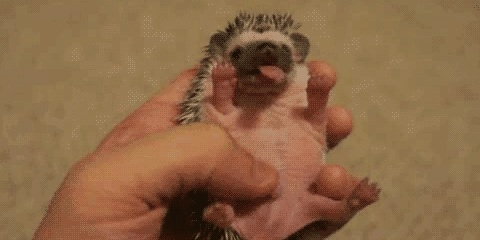Last
time, I mentioned how you can end a run feeling like Batman if you listen
to the right music. I'll use the same image here to describe this feeling:
 |
| I promise I didn't write this article just to reuse this image. |
At the time, I wanted to say more about Batman. But no, I
thought, this is a running blog, and no one wants to hear too much about Batman.
Then I realized that there’s no such thing as too much Batman.
And upon further consideration? There are TONS more reasons
running makes you not only the runner your city deserves, but ALSO the one it
needs right now.
So here’s why runners are actually all Batman.
#1: You’ll Be Fit
This one should almost go without saying. Batman kicks all
kind of ass. It’s pretty much the only common denominator in all his various
media appearances.
 |
| But he only once had nipples on his suit. Never again, Schumacher. |
So how does he accomplish this ass-kickingness? He trains.
He trains HARD. I don’t know if you guys have seen Batman’s hypothetical training schedule,
but it is BANANAS.
 |
Ridiculous. He runs and lifts and flips and ninjas about all
day, only to do it again at night. Most of us don’t have training schedules
like this, but you know what? We also aren’t all super-millionaires without day
jobs. The training we do, as runners, is as intense as Batman’s given our
time-constraints. We push our bodies, reach goals, and get better, just like
Batman. And we do it without crazy-expensive facilities and a sassy British
butler.
So you know what? I think runners might have Batman beat in this
category.
 |
| Take it easy, buddy. We have four more to go. |
#2: You’ll Fight
Crime
Okay, you’re saying, I don’t think so. Batman stops all
kinds of crimes. Muggings? Check. Robberies? Check. Liam Neeson? Check.
 |
| Neeson WITH A GOATEE, no less. |
I know that. But you’re thinking about this in the wrong way.
Just because your run doesn’t always take you through a burning elementary
school to save kids does NOT mean your run doesn’t indirectly help the justice system.
As it turns out, exercise
greatly reduces anger levels. You know what that means to me? Runners are
less likely to commit crimes of passion.
So you’re preventing future
you from committing crimes, see?
This may sound like a stretch, but think about it. If the
Joker had run a 5k every day, maybe he wouldn’t feel the need to kill people.
If Bane was a marathoner, he would be too broken by that experience to even
think about breaking the Bat. If Scarecrow could feel the pure fear of suddenly
needing to poop mid-run, he would never want to inflict fear on anyone else.
Okay, maybe don’t think about it too much.
In any case, if you’re a runner, just be comforted by the
fact that if some crazy chemical accident results in your developing a
distinct physical appearance that qualifies you for Batman’s rogue’s gallery,
you probably WON’T become a homicidal maniac, because you’ll be more in control
of your angry emotions.
I know I am.
#3: You’re Using
Exercise as a Way to Work through Your Issues
I don’t know if you guys know this, but Batman’s parents are
dead.
 |
| Okay, sensitive subject, I'm sorry. |
It’s a pretty big motivator for him. In fact, most
everything he does comes down to being unable to process his grief.
 |
| You know what's cheaper than all this, Batman? Therapy. |
So how does this relate to runners? Well obviously there aren’t many runners who exercise as a way to process both their
parents’ death and being raised by Michael Caine.
 |
| "He raised me with sass instead of love." - Bruce Wayne |
But we all have stresses. We have jobs where someone just
won’t respond to that important email, friends that drift away over time, and not
enough money to buy a functional Batmobile. Running helps with these kinds of
stresses, and you probably don’t need me to tell you that. We all know that
exercise reduces stress.
But you know what else running does? It gives is distance on
memories that might be painful or stressful for us, and distance is the first
step to closure. I’ve
spoken about this in the context of unemployment, and I think it applies to
other things as well.
So when your run makes you feel better, you’ve once again
used running to become Batman. And once again, since he never seems to get over
his parents’ death, I think runners are actually dealing with their issues better.
 |
| YEAH I SAID IT |
#4: You’ll Develop Detective
Skills
A lot of the new media about Batman tends to omit what is,
in many iterations, his main skill: being the World’s Greatest Detective.
 |
| In the movies, he mainly detects with his fists. |
Yeah, he’s strong, and yeah, he beats people up, but what
makes him so formidable is his great intellect. He’s basically gothic Sherlock
Holmes in a cape.
 |
| If they would cast him instead of Affleck, I swear I would see the movie twenty times. |
How does this relate to running? Well, if you take the time
to run every day, you will, simply put, become a running-detective. You will
know your running path like the back of your hand. You will know every
crosswalk you can stop at, dread every slight incline, and welcome every
downhill portion. After a hard-freeze, you will know where the ice patches lie
more confidently than you know the rooms of your house.
Moreover, you will know yourself
more deeply. All the parts of your body have to pitch in when you’re a
distance runner. You will suddenly pay attention to your knee, that thigh
muscle, a tight shoulder, etc. You will be able do deduce why a run went badly,
how what you ate affected you, how your office chair might cause your back to
ache mid-run.
You will gain an eye for the details that would otherwise be
missed in a more sedentary life. Basically, you will become Batman.
#5: You’re All Heroes!
I’ve
said it before guys, but it bears repeating: runners are awesome. We support
each other, enjoy our sport, and help charities with our events! For example, this
weekend, I’m running a
5k to support opportunities for the homeless (I’ll report back on this Monday).
Runners could have found any excuse to go and run. We love
it anyway for so many different reasons. We could even run in capes to express
our love of Batman. But you know what runners do, no matter why we run? We use
our sport to help others. We get together to prove that people can make a
difference.
Did you see that more
people are going to the Boston Marathon than ever before this year? That
alone shows how runners are heroes. And you know who else is a hero?
Batman.
So good for you, runners. Now put on a mask, pull on some
tights, and go run.
































